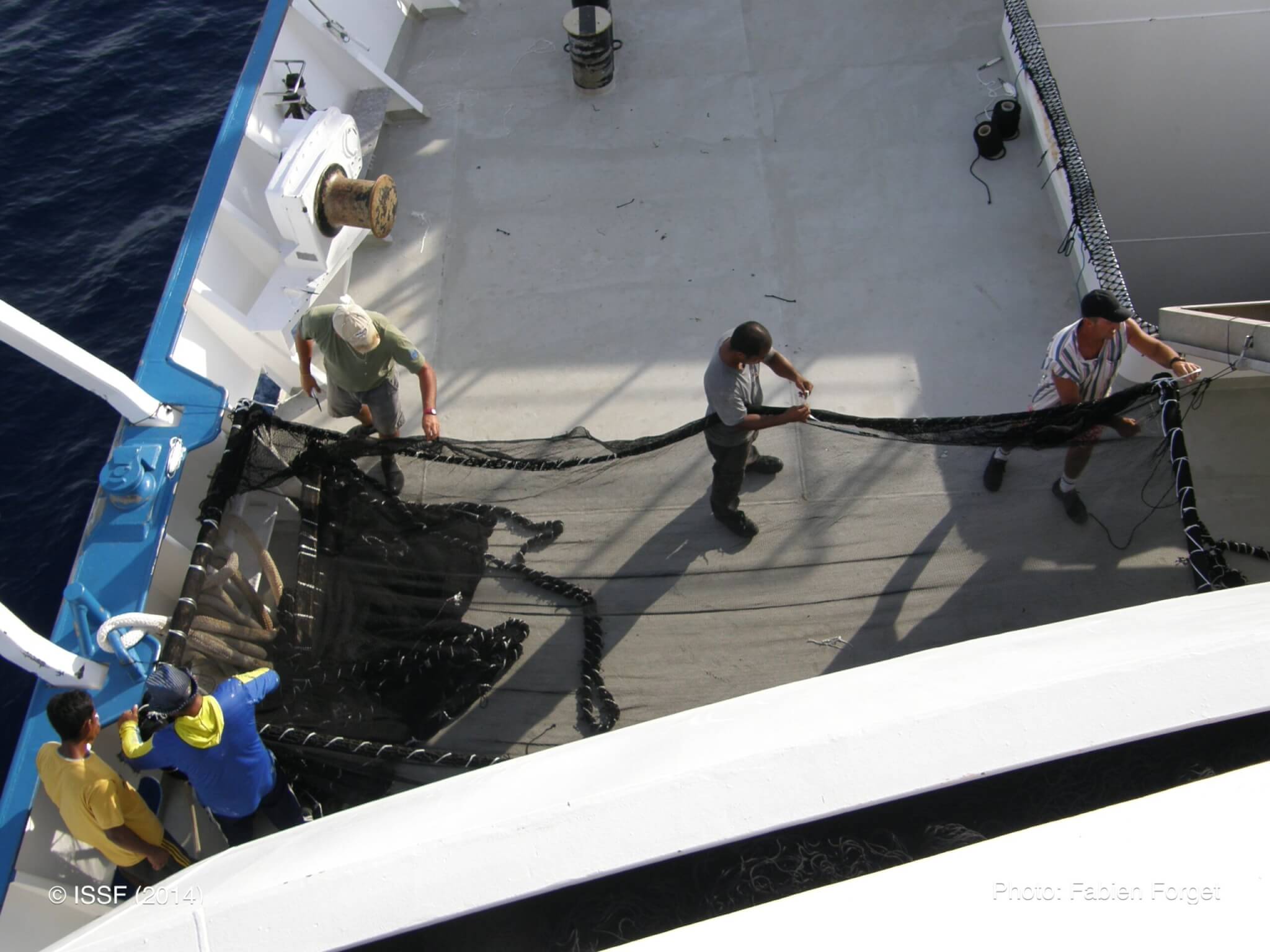
ISSF Publishes Annual Report Highlighting 2020 Accomplishments for Sustainable Tuna Fisheries
The International Seafood Sustainability Foundation (ISSF) released its 2020 annual report today, titled Staying the Course, which presents the organization’s tuna-fishery sustainability achievements during an unprecedented year of challenges brought about by the COVID-19 pandemic.
“The ISSF team did more than just ‘keep on keepin’ on,’ although that would have been accomplishment enough for any individual or organization in 2020,” ISSF President Susan Jackson remarks in the report. “We undeniably hit our stride. We marshalled the discipline, tools, and resourcefulness that we long ago developed as a decentralized, global team. To stay informed and connected while sheltering in place, we made the most of technologies both innovative and tried-and-true.”
Staying the Course reviews ISSF’s continued cross-sector collaborations, marine research projects and advocacy efforts to identify and promote best practices in tuna and ocean conservation with fishers, tuna companies, and Regional Fisheries Management Organizations (RFMOs). The report also covers ISSF’s activities with environmental nongovernmental organizations (NGOs), scientific agencies and more.
Our 2020 annual report covers ISSF collaborations, research, and advocacy efforts to identify and promote best practices in #tuna and #ocean #conservation. Share on XStaying the Course Highlights
Two members of the ISSF Scientific Advisory Committee and Environmental Stakeholder Committee contributed feature articles for the report on timely topics. Dr. Andrew A. Rosenberg. Director, Center for Science and Democracy, Union of Concerned Scientists and Member, ISSF Scientific Advisory Committee, authors “Transparency Matters.” Sara Lewis, Director, Traceability Division, FishWise and Member, ISSF Environmental Stakeholder Committee, contributes “Social Responsibility & Sustainable Seafood.”
Video content and downloadable graphics are available throughout Staying the Course. The report also explores these milestone accomplishments:
- The launch of VOSI, a public vessel list verifying participation in MSC-certified fisheries and fishery improvement projects (FIPs)
- The adoption of a conservation measure addressing social and labor policies for seafood companies
- Biodegradable fish aggregating device (bioFAD) research and fisher-scientist work on bycatch-mitigation best practices, conducted despite pandemic constraints
Conservation Measures & Commitments Compliance Report
Also included in Staying the Course are key findings of the ISSF Annual Conservation Measures & Commitments Compliance Report, which ISSF has published in coordination with the annual report.
The ISSF Annual Conservation Measures & Commitments Compliance Report shows a conformance rate of 99.4 percent by 26 ISSF participating companies as of March 2021. It tracks companies’ progress in conforming with ISSF conservation measures (CM) like these:
- Demonstrating the ability to trace products from can code or sales invoice to vessel and trip
- Submitting quarterly catch, vessel, species and other data to RFMO scientific bodies
- Transactions only with those longline vessels whose owners have a policy requiring the implementation of best practices for sharks and marine turtles
- Establishing and publishing policies to prohibit shark finning and avoiding transactions with vessels that carry out shark finning
- Conducting transactions only with purse seine vessels whose skippers have received science-based information from ISSF on best practices such as reducing bycatch
- Avoiding transactions with vessels that are on an RFMO Illegal, Unregulated and Unreported (IUU) Fishing list
Three measures were newly in effect for the 2020 audit period, and all 26 companies were in full conformance with them:
- CM 2.4 Supply Chain Transparency, Audit, Reporting and Purchase Requirements
- CM 7.1(b) Controlled Vessels — Longline
- CM 7.5 Purchases from PVR Vessels — Longline
As part of its commitment to transparency and accountability, ISSF engages third-party auditor MRAG Americas to audit participating companies to assess their compliance with ISSF’s conservation measures. MRAG Americas conducts independent auditing based on a rigorous audit protocol.
In addition to a summary report, MRAG Americas issues individual company reports that detail each organization’s compliance with ISSF’s conservation measures. ISSF publishes these individual company compliance reports on its website.


